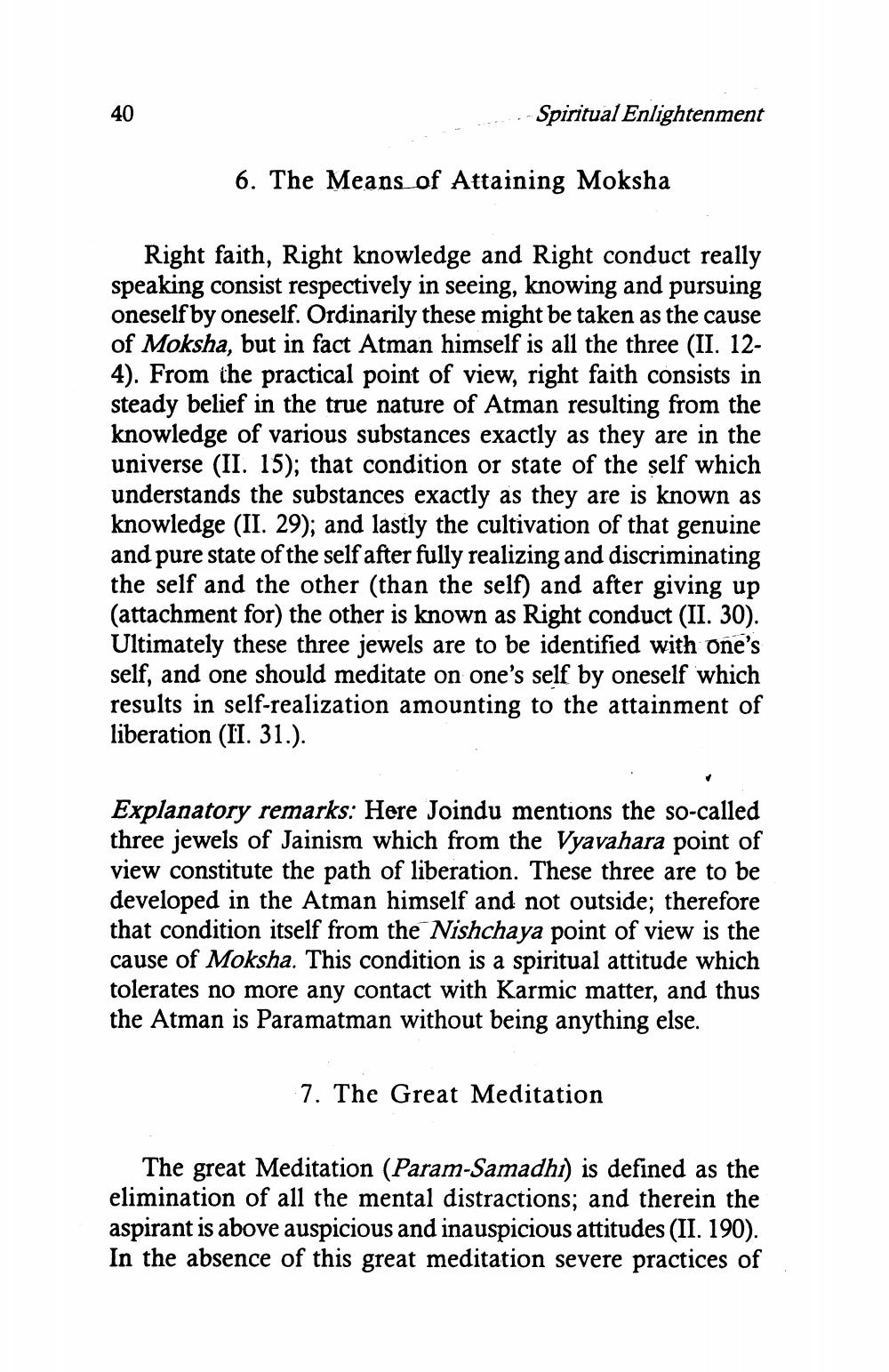________________
40
Spiritual Enlightenment
6. The Means of Attaining Moksha
Right faith, Right knowledge and Right conduct really speaking consist respectively in seeing, knowing and pursuing oneself by oneself. Ordinarily these might be taken as the cause of Moksha, but in fact Atman himself is all the three (II. 124). From the practical point of view, right faith consists in steady belief in the true nature of Atman resulting from the knowledge of various substances exactly as they are in the universe (II. 15); that condition or state of the self which understands the substances exactly as they are is known as knowledge (II. 29); and lastly the cultivation of that genuine and pure state of the self after fully realizing and discriminating the self and the other (than the self) and after giving up (attachment for) the other is known as Right conduct (II. 30). Ultimately these three jewels are to be identified with one's self, and one should meditate on one's self by oneself which results in self-realization amounting to the attainment of liberation (II. 31.).
Explanatory remarks: Here Joindu mentions the so-called three jewels of Jainism which from the Vyavahara point of view constitute the path of liberation. These three are to be developed in the Atman himself and not outside; therefore that condition itself from the Nishchaya point of view is the cause of Moksha. This condition is a spiritual attitude which tolerates no more any contact with Karmic matter, and thus the Atman is Paramatman without being anything else.
7. The Great Meditation
The great Meditation (Param-Samadhi) is defined as the elimination of all the mental distractions, and therein the aspirant is above auspicious and inauspicious attitudes (II. 190). In the absence of this great meditation severe practices of




